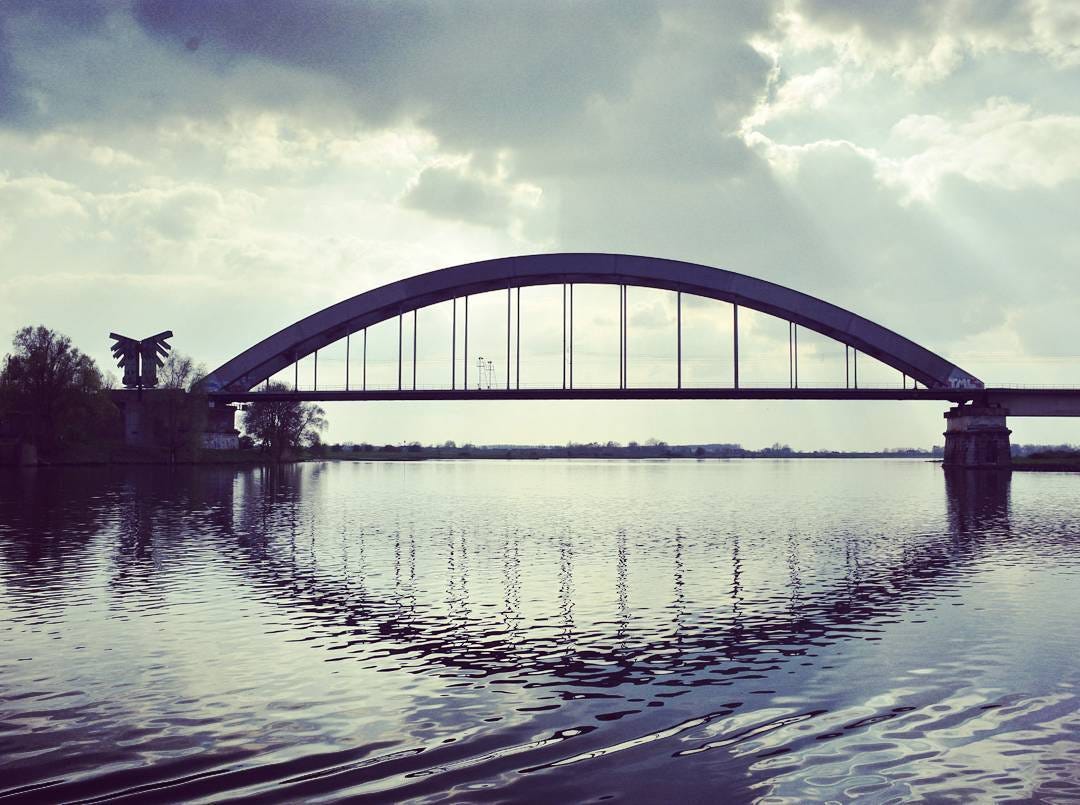The price of having nice stuff
Some nice infrastructure ya got there, shame if anything happened to it
A Twitter user named Andrew Hammel (“Writer translator editor US lawyer living in Düsseldorf”) posted a thread the other day describing the potentially profound impact the ongoing energy crisis could have on Germany:
I think many Germans don't realize how the energy crisis directly threatens Germany's future as a prosperous country. Germany has a huge bureaucracy and social-welfare apparatus, and provides comparatively generous subsidies for the arts. Universities are free, which means the taxpayer pays for them, and lots of vocational training is also heavily subsidized. Where does all the money to pay for this come from?
[….]
Read the rest of his very perceptive thread here: ThreadReaderApp.
In case you didn’t know, modern social welfare states are expensive. It’s not just physical infrastructure and social programs but it’s also the broad category of immaterial infrastructure (think public services such as education, the judicial system, public safety, etc). State spending in France amounts to some sixty percent of GDP. In the Netherlands, it’s a little lower, around forty-five percent. You read that right: our liberal democracies have very high price tags, easily half of GDP.
Of course, libertarians and “free market” ideologues will argue government spending is inherently wasteful, it crowds out private investment, etc. I’m not going there, I’m simply presenting the current situation as a given and will simply add: at the end of the day these are the things that makes our societies civilized.
In Hammel’s thread, he discusses the extensive state support Germany provides for education, culture, and so on. Other European countries, to varying degrees, offer similar support. The Netherlands is somewhat less generous in spending on certain public services (health care, education, and the police have been chronically underfunded for a decade or longer — seems we don’t like spending money on useful people), but where the country really shines is physical infrastructure. The roads are well maintained; the rail system is being constantly improved, new stations added every year. There was funding to expand the Rotterdam harbor (Tweede Maasvlakte) and add a new ocean lock in IJmuiden to improve sea-going access for the Amsterdam harbor. Here in the center of Amsterdam, not one but two new vast underground bicycle garages are being built adjacent to the central train station. The city has also embarked upon an ambitious twenty-year plan to rebuild many kilometers of canal walls (kademuren), which have been weakened in recent decades, mostly like to due to weight of heavy trucks and other vehicular traffic for which they were never designed. Given that a good third of the country is technically below sea level, the Dutch traditionally take physical infrastructure seriously; it’s an existential matter here.
All this stellar physical infrastructure is due in large part to the fact that Holland has a flourishing export-driven economy, a trade surplus with the rest of the EU that’s even higher per capita than that of Germany, something not many people are aware of. While we may not be as directly dependent on Russian energy supplies as Germany is, we are, along with the rest of Europe, extremely vulnerable to the vicissitudes of the energy market, thanks to the liberalization policies pushed through by the EU, acting under the nefarious influence of major financial and energy players. Having energy costs rise so exorbitantly — already 10x in some situations — will be absolutely ruinous for everyone.
Europe’s Green politicians seem utterly oblivious to the impending disaster. German vice chancellor and economics minster Robert Habeck of the Greens says it's going to be a hard winter, but he has no apparent strategy to deal it, offers no solutions. One gets the sense that Habeck in fact welcomes a controlled demolition of the German economy as a form of creative destruction, a painful rebirth that will usher us towards their Millennialist fantasy of a fossil fuel-free future. Just grin and bear it, a glorious low-carbon Utopia awaits us all.
I want to ask our Dutch Greens: look around you. Look at all these very nice roads — and schools, and trains, and bike paths, and public parks, not to mention the carefully maintained dykes and flood control systems that keep our feet dry. We should try hard to keep this stuff, no? We need to act rationally and turn back on the Russian gas tap. We have no choice. Our committing economic suicide will not stop climate change, insofar that human activity has any impact on it to begin with.



I have all my life advocated for taking better care of the earth. But I find myself seeing the "greens" and the climate lobby as something of a death cult, convinced we are a plaque upon the earth.
Does the average Dutch citizen think Russia and Putin are existential threats? Because it seems to this American the far greater threat are ideological technocrats of the West.
Great article, Colin. It lays out the realities. I get the impression, from many in-person encounters, that people don't understand the downsides of aggressive sanctimony and ideological constipation. They're caught up in performative hamster-wheeling. There are not many realists.